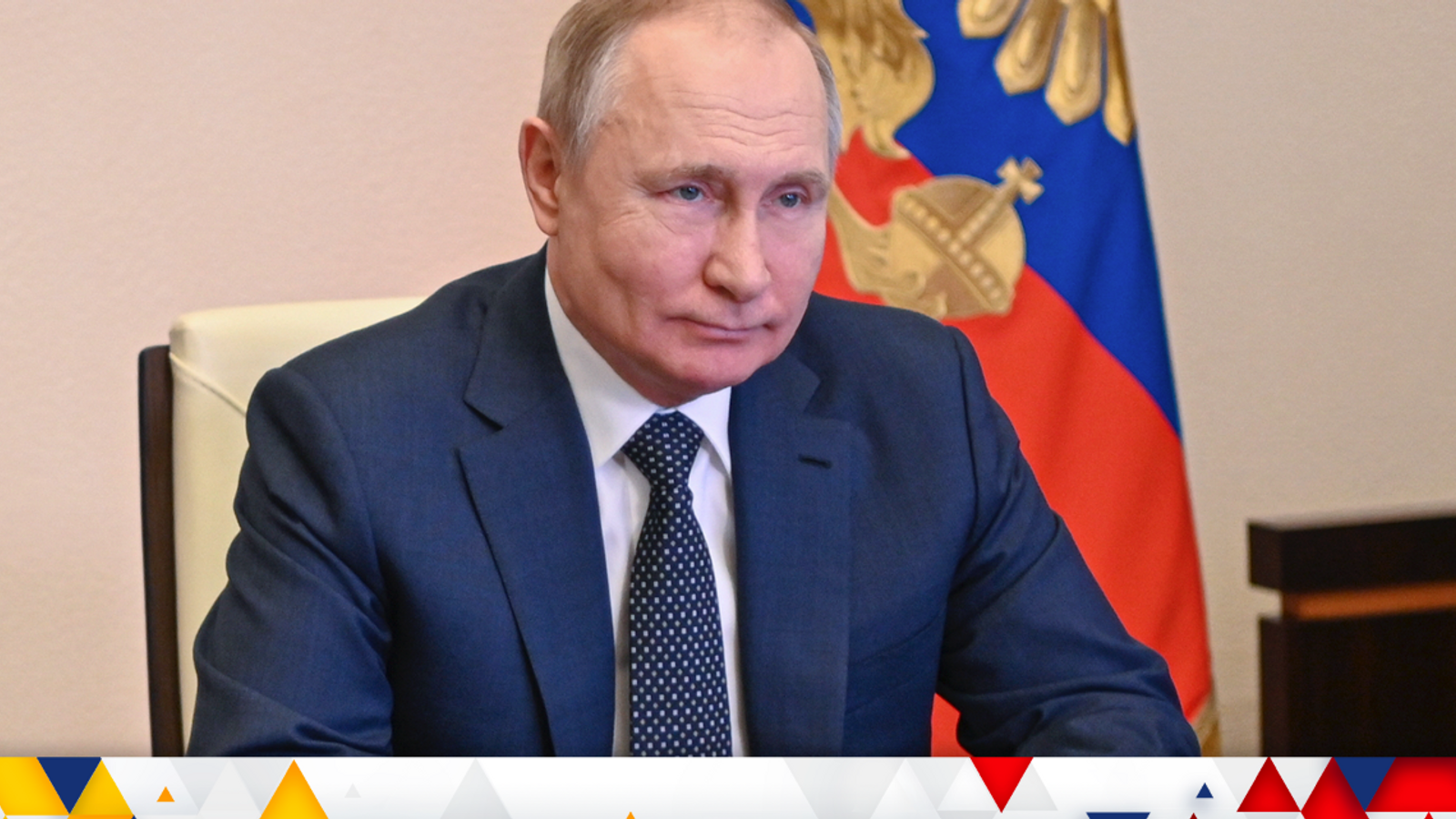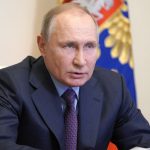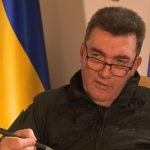The West has acted in a “disgusting, criminal” way towards Russia, the deputy secretary of the country’s security council has said, as the Kremlin responded to Western reaction to the invasion.
Former president Dmitry Medvedev described the behaviour of the West as “amoral” and accused it of stoking Russophobia to try and rip Russia apart.
He added that Russia “has the might to put all of our brash enemies in their place”.
It comes after Russian president Vladimir Putin angrily hit back at Joe Biden who called him a “war criminal”, saying comments by the US president were “unforgivable”.
Moscow has also repeatedly denied targeting civilians.
Russia’s invasion ‘has largely stalled on all fronts’ – live updates
Crackdown on ‘lawfare’ from oligarchs and super-rich promised by Boris Johnson
Ukraine war: Surrogate babies cared for in basements as Russia’s onslaught on Kyiv continues
Boris Johnson doesn’t say whether he reached oil deal on Saudi Arabia trip – and insists human rights talks will remain ‘private’
Please use Chrome browser for a more accessible video player
Despite scepticism from the White House over progress in talks, Russia said yesterday that some parts of a possible peace deal with Ukraine were close to being agreed.
In a speech yesterday, Putin also took aim at Russians who do not support the invasion, saying Russia “will always be able to distinguish true patriots from scum and traitors and will simply spit them out like a gnat that accidentally flew into their mouths”.
Since Russia’s invasion of Ukraine, the West has placed heavy sanctions on individuals with some companies pulling out from the country and suspending their services.
The UK has sanctioned more than 1,000 of Russia and Belarus’ most significant and high-value individuals, entities, and subsidiaries.
Boris Johnson has vowed a further crackdown on oligarchs by promising to curb their abuse of the UK legal system to stifle public criticism.
Six nations have called for a UN Security Council meeting on Ukraine this afternoon, ahead of an expected Friday vote on a resolution demanding protection for Ukrainian civilians “in vulnerable situations”.
With the invasion Ukraine’s president Volodymyr Zelensky has continued to urge for a no-fly zone from the West to protect the country’s sky.
He addressed the German parliament and criticised Western leaders – saying “they acted too slowly” and “did not go far enough” taking action against Russia.
The latest Ministry of Defence update suggests Russian forces have made “minimal progress” on land, sea and air in recent days as Russia continues its invasion.
The prospect of Ukrainian neutrality has been put forward as a possible agreement to pave way to a peace deal. But what would that mean?
Ukraine’s ambitions to join NATO – enshrined in its constitution since 2019 – were aspirational but never going to happen soon.
The alliance never put Ukraine on a firm path to membership, despite what Putin or Ukraine might claim.
NATO requires prospective members to resolve any territorial disputes, therefore Ukraine’s disputed Donbas region would have precluded immediate accession.
Nevertheless, the prospect of Ukraine joining NATO, however remote, was anathema to Putin and enough in his eyes to justify an invasion.
Examples of neutral states include Ireland, Switzerland, Austria, Finland and Sweden. Under international law, neutrality prohibits states from interfering in conflicts or territorial disputes.
If Ukraine were to accept neutrality, it would still require security guarantees, albeit it no longer from NATO.
These guarantees could come from specific agreements with the US, UK or France but it is unlikely Moscow would accept that unless Russia were also a named guarantor. And how would that work, in the current climate?
It’s a route to peace, but not a straightforward one.






















